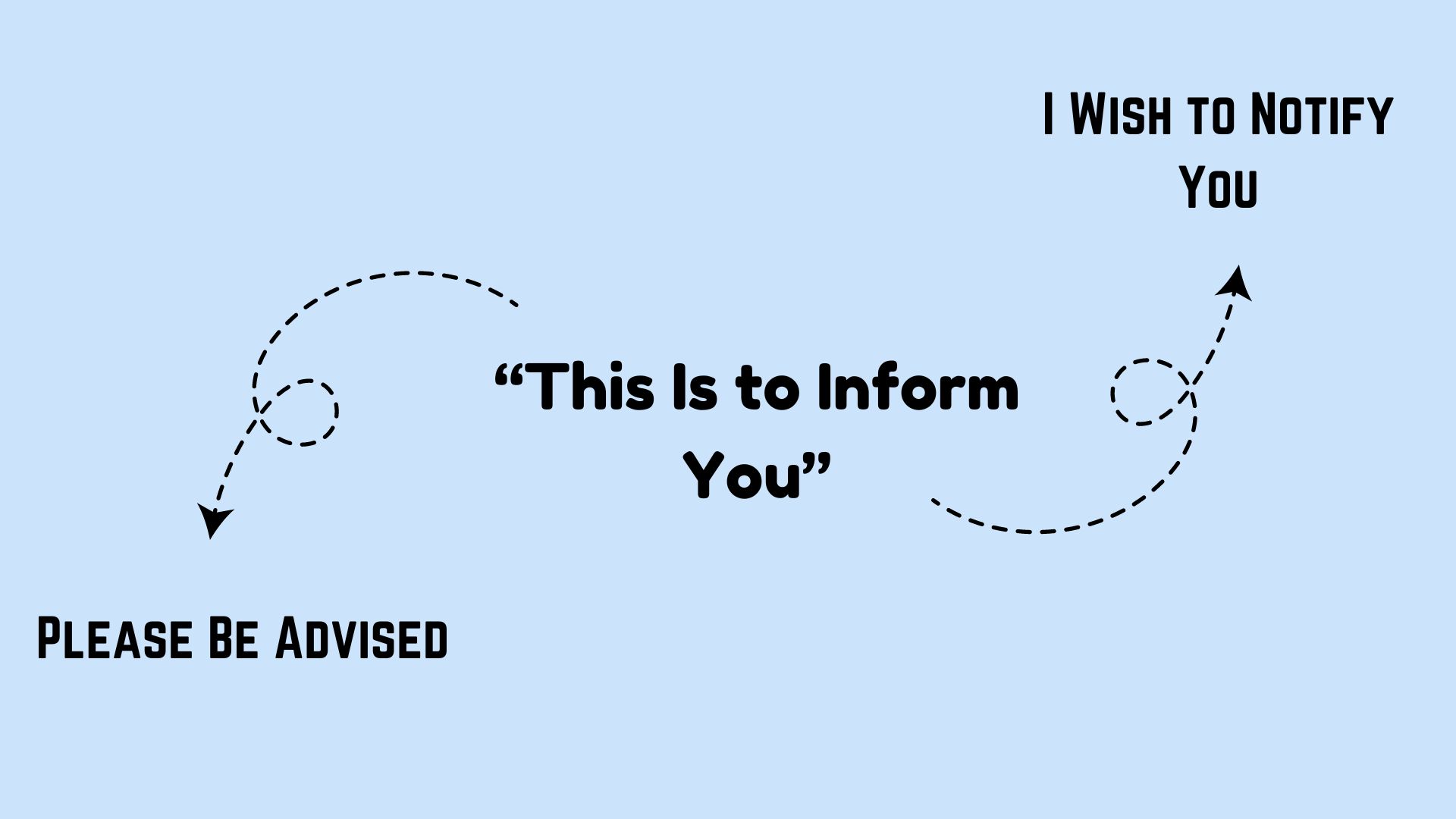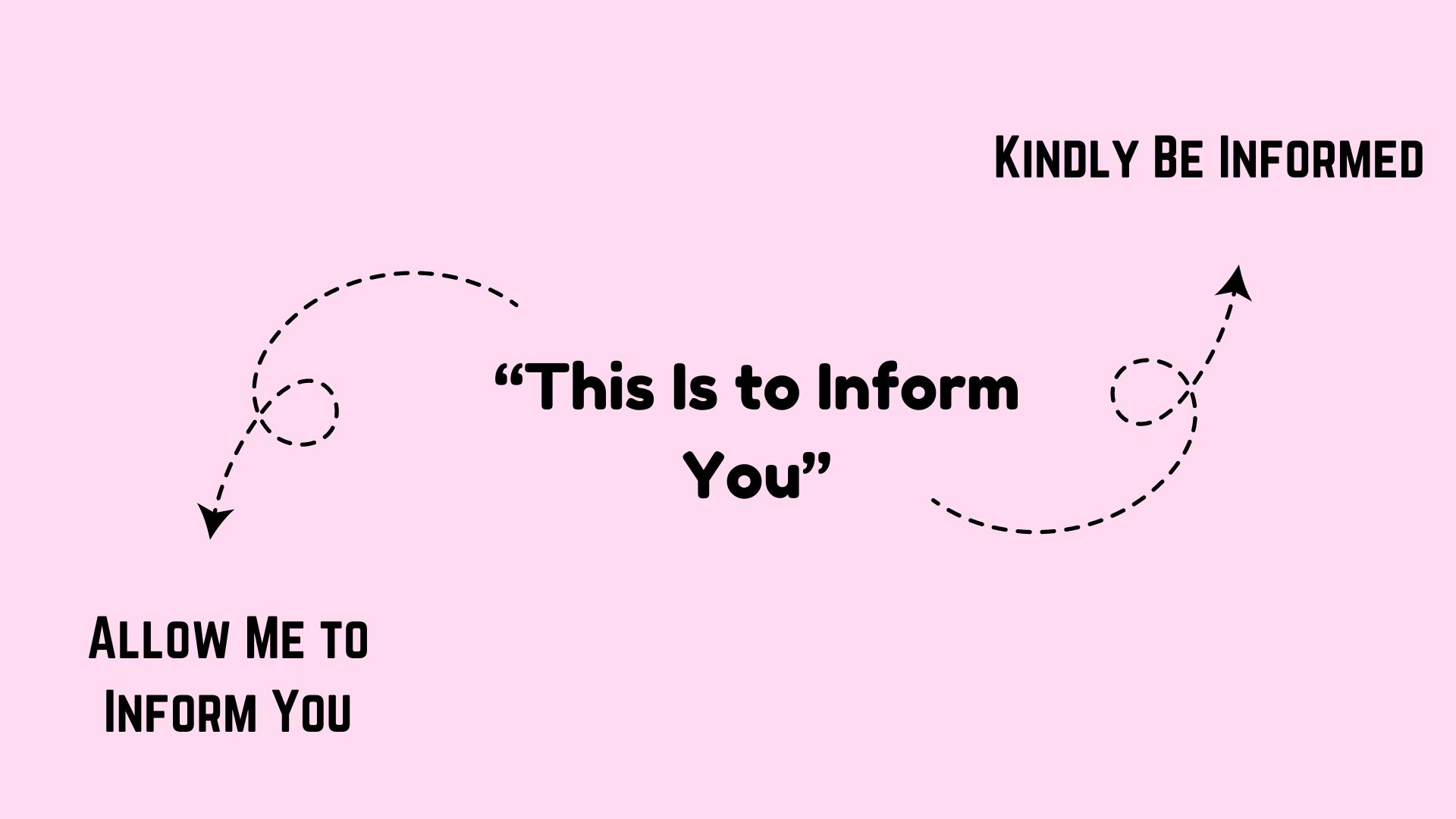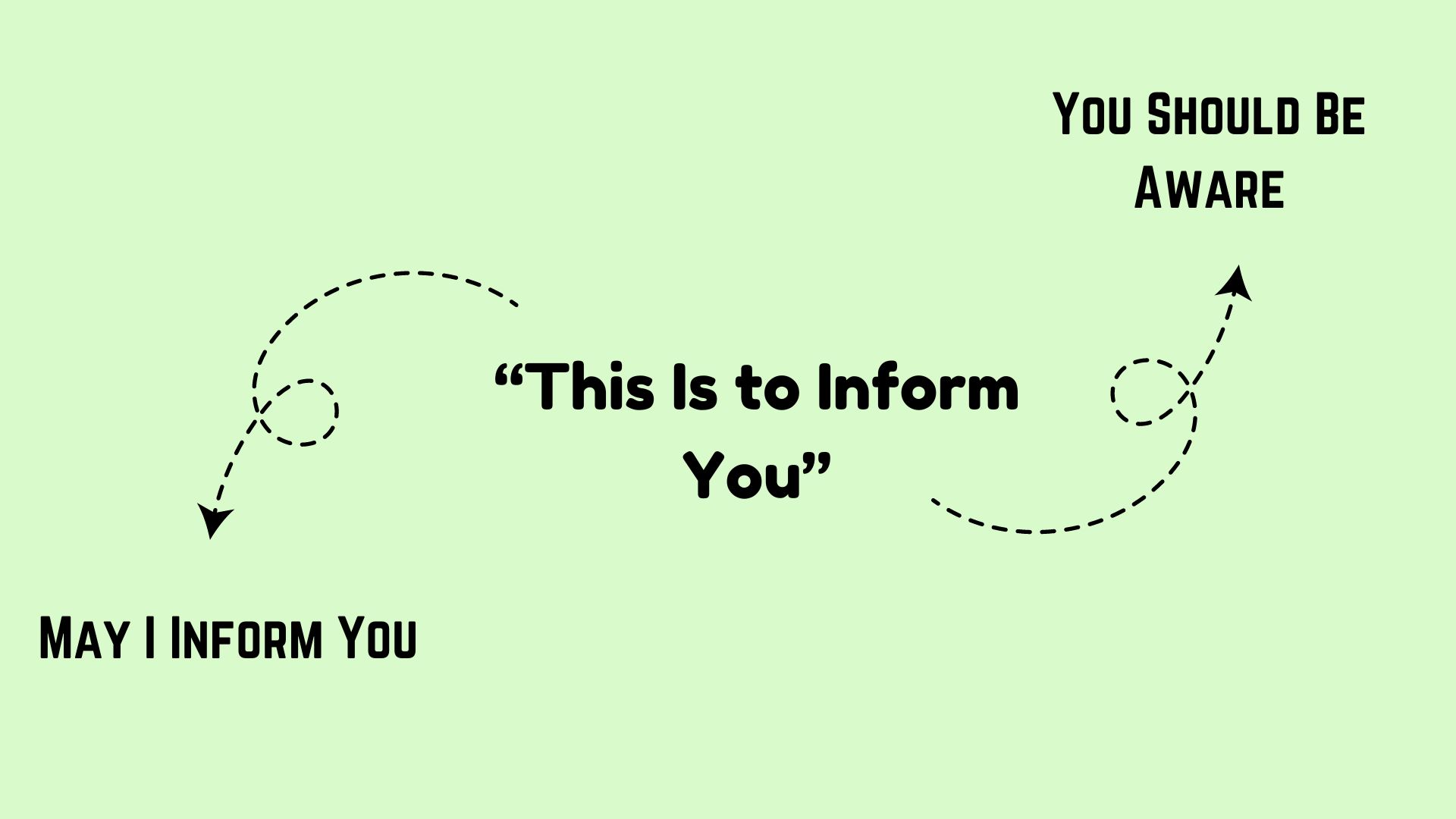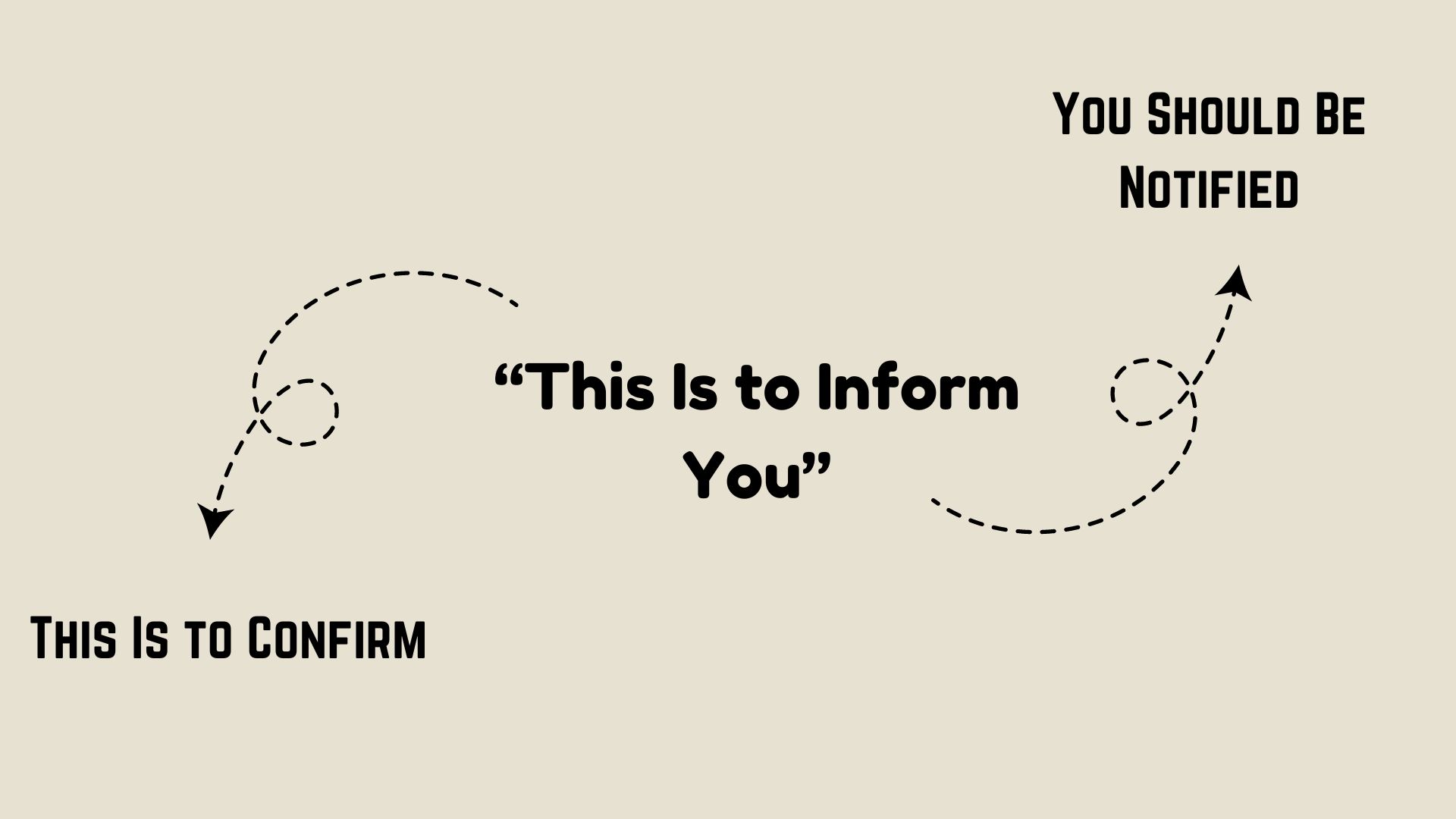In professional settings, clearly communicating information is essential. Here are 21 ways to formally convey information in various professional contexts, each with an example and a specific use case to help ensure your communication is effective and appropriate.
1. I Wish to Notify You
Example: “I wish to notify you that the meeting time has been changed to 3 PM.”
Use Case: When you need to formally inform someone about a change in schedule.
2. Please Be Advised
Example: “Please be advised that the office will be closed next Friday.”
Use Case: To give formal notification of important logistical changes.
3. I Would Like to Inform You
Example: “I would like to inform you that your application has been processed.”
Use Case: When providing an update on the status of an application or request.
4. It Is Important to Mention
Example: “It is important to mention that the guidelines have been updated.”
Use Case: When highlighting updates or changes that require attention.
5. For Your Information
Example: “For your information, the deadline for submissions has been extended.”
Use Case: Providing additional information that could be beneficial to the recipient.

6. I Am Writing to Let You Know
Example: “I am writing to let you know that your proposal has been accepted.”
Use Case: To convey decisions or responses that are significant to the recipient.
7. I Am Pleased to Inform You
Example: “I am pleased to inform you that your team won the excellence award.”
Use Case: When delivering good news or positive results.
8. You Might Like to Know
Example: “You might like to know that we are updating our software next month.”
Use Case: Informing someone about upcoming changes or improvements.
9. Kindly Be Informed
Example: “Kindly be informed that the location for the event has changed.”
Use Case: A polite way of informing someone about changes requiring their attention.
10. Allow Me to Inform You
Example: “Allow me to inform you that Dr. Smith will take over your consultation.”
Use Case: When introducing a new point of contact or changing the lead on a project.

11. It Has Come to Our Attention
Example: “It has come to our attention that there were errors in the report.”
Use Case: Notifying someone of issues or errors that need to be addressed.
12. I Need to Update You
Example: “I need to update you on the progress of the project.”
Use Case: Providing an update on ongoing projects or initiatives.
13. It Is My Responsibility to Inform You
Example: “It is my responsibility to inform you that the terms have been modified.”
Use Case: When it’s your duty to notify someone about changes or updates.
14. You Should Be Aware
Example: “You should be aware that the policy terms have changed.”
Use Case: Advising someone of changes that may affect them directly.
15. May I Inform You
Example: “May I inform you that the meeting will be postponed?”
Use Case: A respectful and formal request to provide new information.

16. You Are Hereby Informed
Example: “You are hereby informed that your contract will not be renewed.”
Use Case: A formal declaration, often used in legal or contractual communications.
17. It Is Necessary to Communicate
Example: “It is necessary to communicate that your application status has changed.”
Use Case: When it’s crucial to update someone on changes affecting their status or position.
18. You Should Be Notified
Example: “You should be notified that the review process will take longer than expected.”
Use Case: Informing someone of delays or extended timelines.
19. I’m Obligated to Inform You
Example: “I’m obligated to inform you of the breach in protocol.”
Use Case: When you must notify someone of procedural failures or issues.
20. I Must Bring to Your Attention
Example: “I must bring to your attention that we have received your shipment.”
Use Case: Used to confirm the receipt of goods, documents, or other items of importance.

21. This Is to Confirm
Example: “This is to confirm your booking for the conference room.”
Use Case: When confirming reservations, appointments, or bookings in a formal manner.
Each phrase offers a way to communicate information professionally, ensuring that your message is conveyed with clarity and appropriate formality.

